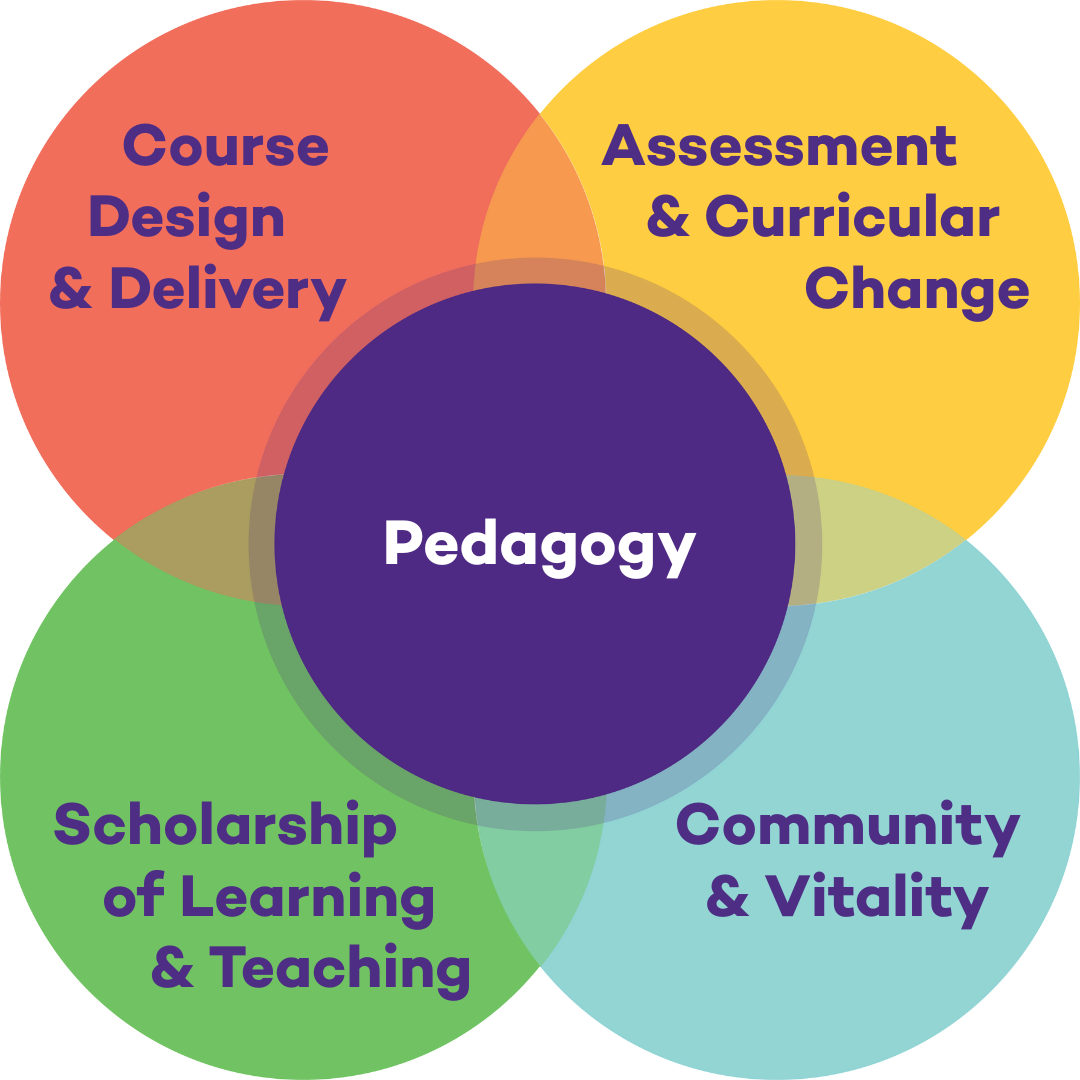 With pedagogy at the center, we organize our work through five interconnected focus areas, where we stay at the forefront of emerging trends in learning and teaching.These areas reflect our priorities in supporting instructors at all stages of their careers, as well as our commitment to being at the forefront of emerging trends in learning and teaching.
With pedagogy at the center, we organize our work through five interconnected focus areas, where we stay at the forefront of emerging trends in learning and teaching.These areas reflect our priorities in supporting instructors at all stages of their careers, as well as our commitment to being at the forefront of emerging trends in learning and teaching.
Each focus area page provides an overview and a curated selection of books, resources, guides, and programming relevant to the focus area. Additionally, our programs and Learning & Teaching Guides are searchable by focus area to quickly identify offerings and resources related to your interests.
Choose a Focus Area to Explore
We are committed to deepening reflective, evidence-informed, and innovative pedagogical practices. This focus area connects instructors with programs and resources to promote pedagogical reflection, enhance sustainable teaching practices, and prepare students to be problem-solvers in a complex world.
We support instructors in designing student-centered courses through systematic, evidence-based methods. This focus area connects instructors with programs and resources to create engaging materials, stimulate active learning, and equip all students with the skills they need to thrive in their academic life.
We promote systematic approaches to assessing student learning, using data to inform and drive curricular changes. This focus area connects instructors with programs and resources to infuse assessment into course design for significant learning, strengthen student learning outcomes, and enhance assessment that is transparent, rigorous, and empathetic.
We understand that being in community with our colleagues and reminding ourselves of our purpose as educators are important to staving off academic burnout and isolation. This focus area connects instructors with programs and resources that aim to safeguard well-being; create powerful moments of insight, joy, and transformation; and facilitate thoughtful, restorative exchanges between instructors.
We highlight the intentional practice of scholarly teaching to optimize student learning. This focus area connects instructors with programs and resources to enhance teaching methods, scaffold original research through communities of practice, and disseminate findings to advance the body of knowledge on learning and teaching.
 With pedagogy at the center, we organize our work through five interconnected focus areas, where we stay at the forefront of emerging trends in learning and teaching.These areas reflect our priorities in supporting instructors at all stages of their careers, as well as our commitment to being at the forefront of emerging trends in learning and teaching.
With pedagogy at the center, we organize our work through five interconnected focus areas, where we stay at the forefront of emerging trends in learning and teaching.These areas reflect our priorities in supporting instructors at all stages of their careers, as well as our commitment to being at the forefront of emerging trends in learning and teaching.